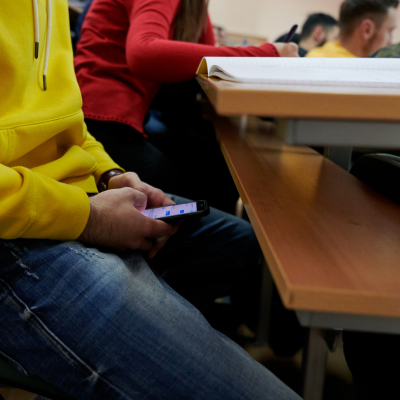The Risks and Consequences of Cheating on Exams: Comprehensive Guide

In the era of online learning and remote education, proctored exams have become a standard method for assessing students’ knowledge and understanding. However, with the convenience of taking exams from home comes the temptation to cheat. In this comprehensive guide, we’ll explore the risks and consequences of cheating on proctored exams, as well as the importance of academic integrity and ethical behavior in education.
Understanding Proctored Exams
Proctored exams are assessments that are monitored and supervised by a proctor, either in person or remotely. The purpose of proctoring is to ensure the integrity and security of the exam by preventing cheating and unauthorized behavior. Proctored exams may use various monitoring methods, including live proctors, automated proctoring software, and video recording.
Types of Cheating on Proctored Exams
Cheating on proctored exams can take various forms, including:
- Unauthorized Assistance: Receiving help or answers from external sources such as textbooks, notes, or other individuals during the exam.
- Plagiarism: Copying or paraphrasing content from external sources without proper citation or acknowledgment.
- Use of Cheat Sheets: Creating and using cheat sheets, notes, or unauthorized materials during the exam.
- Impersonation: Allowing someone else to take the exam on your behalf or using a false identity.
- Technology-Based Cheating: Using technological tools or devices to access prohibited information or resources during the exam.

Risks and Consequences of Cheating
- Academic Consequences: Cheating on a proctored exam can result in severe academic consequences, including failing the exam, receiving a failing grade in the course, or even expulsion from the educational institution. Academic integrity violations are taken seriously by educational institutions and can have long-term consequences on your academic record and future opportunities.
- Ethical Implications: Cheating undermines the principles of academic integrity, honesty, and fairness. It compromises the value of education and devalues the achievements of honest students who work hard and adhere to ethical standards. Cheating erodes trust between students, educators, and institutions, leading to a negative impact on the learning environment.
- Legal Ramifications: In some cases, cheating on exams may have legal implications, especially if it involves fraud, impersonation, or violations of intellectual property rights. Legal consequences can include civil penalties, lawsuits, and criminal charges, depending on the severity of the cheating behavior and applicable laws.
- Professional Reputation: Cheating can damage your professional reputation and credibility. Employers and academic institutions value integrity, honesty, and ethical behavior in their employees and students. A history of academic dishonesty can raise red flags and hinder your career advancement or educational opportunities.
Importance of Academic Integrity
Maintaining academic integrity is crucial for upholding the value and credibility of education. Academic integrity encompasses honesty, fairness, responsibility, and respect for intellectual property. Adhering to academic integrity principles promotes a culture of trust, collaboration, and ethical conduct in educational settings.

Strategies for Maintaining Academic Integrity
- Prepare Ethically: Prioritize thorough preparation, studying, and understanding of course materials to avoid the temptation to cheat during exams.
- Follow Exam Guidelines: Familiarize yourself with exam guidelines, rules, and expectations set by your educational institution. Adhere to the instructions provided during proctored exams and avoid engaging in unauthorized behavior.
- Avoid Prohibited Resources: Refrain from using unauthorized resources, materials, or technological tools during exams. Respect exam security measures and academic policies.
- Seek Help Legitimately: If you need clarification or assistance, seek help from instructors, tutors, or academic support services through legitimate channels. Communicate openly and honestly about your academic challenges and seek solutions through ethical means.
- Promote Academic Integrity: Encourage a culture of academic integrity and ethical behavior among your peers, classmates, and colleagues. Lead by example and uphold the values of honesty, fairness, and responsibility in academic endeavors.
Conclusion: Upholding Academic Integrity
Cheating on proctored exams carries significant risks and consequences that can impact your academic, ethical, and professional standing. Maintaining academic integrity is essential for preserving the value of education, fostering a culture of trust and respect, and upholding ethical standards in learning environments. By adhering to ethical principles, following exam guidelines, and prioritizing honest and responsible behavior, you contribute to a positive and ethical academic community where integrity and learning thrive.
Certainly, let’s delve deeper into the strategies for promoting academic integrity, exploring real-life examples of cheating on proctored exams, and discussing the role of technology in preventing cheating.
Promoting Academic Integrity
- Educational Campaigns: Educational institutions can launch awareness campaigns and training sessions to educate students about the importance of academic integrity, ethical behavior, and the consequences of cheating. These initiatives can include workshops, seminars, and resources on plagiarism prevention, citation practices, and ethical decision-making.
- Code of Conduct: Establish and communicate a clear code of conduct regarding academic integrity, cheating, and consequences for violations. Ensure that students understand the expectations, responsibilities, and ethical standards upheld by the institution.
- Proctoring Technologies: Utilize advanced proctoring technologies and software solutions to monitor and deter cheating during exams. Automated proctoring tools can detect suspicious behavior, monitor screen activity, and flag potential violations in real time.
- Peer Accountability: Encourage peer accountability and responsibility within academic communities. Promote a culture where students hold each other accountable for upholding academic integrity, reporting suspected violations, and supporting ethical conduct.
- Assessment Design: Design assessments and exams that emphasize critical thinking, problem-solving, and application of knowledge rather than rote memorization or regurgitation of information. Use a variety of question formats, such as essays, case studies, and scenarios, to assess higher-order thinking skills and reduce the likelihood of cheating.
Real-Life Examples of Cheating on Proctored Exams
- Screen Sharing: Some students attempt to cheat by using screen sharing or remote desktop applications to allow others to view their exam screens and provide assistance.
- Impersonation: Instances of impersonation, where a student hires someone else to take the exam on their behalf or uses a false identity, have been reported in proctored exams.
- Hidden Notes: Students may attempt to hide cheat sheets, notes, or reference materials in their surroundings or clothing during proctored exams, hoping to access them discreetly.
- Collusion: Collaborative cheating, where students collaborate or communicate with each other during exams to share answers or information, is another form of cheating observed in proctored settings.
- Technological Tools: Some students use advanced technological tools, such as microphones, earpieces, or smart devices, to receive real-time assistance or access prohibited resources during exams.
The Role of Technology in Preventing Cheating
- Proctoring Software: Advanced proctoring software uses artificial intelligence (AI), facial recognition, eye tracking, and keystroke analysis to monitor and detect cheating behavior during exams. These technologies can flag suspicious activities, verify student identities, and ensure exam integrity.
- Secure Browser Environments: Secure browser environments restrict access to external websites, applications, and resources during exams, minimizing the risk of cheating through unauthorized means.
- Remote Proctoring: Remote proctoring solutions enable live proctors to monitor exams in real time, intervene in case of suspicious behavior, and uphold exam integrity remotely.
- Biometric Authentication: Biometric authentication methods, such as fingerprint or facial recognition, can verify the identity of students taking proctored exams and prevent impersonation or identity fraud.
- Data Analytics: Data analytics tools analyze exam data, patterns, and anomalies to identify potential cheating incidents, trends, and areas of concern. Institutions can use these insights to enhance exam security and deter cheating behaviors effectively.
Conclusion: Fostering Integrity in Education
Cheating on proctored exams poses challenges and risks to the integrity and credibility of education. However, by implementing proactive strategies, promoting ethical behavior, leveraging technology, and fostering a culture of integrity, educational institutions can uphold academic standards, ensure fair assessment practices, and nurture a learning environment built on trust, honesty, and responsibility. As students, educators, and stakeholders collaborate to address cheating challenges, prioritize academic integrity, and embrace ethical practices, the value and impact of education are strengthened, contributing to lifelong learning and success.
Certainly! Let’s explore additional aspects related to cheating on proctored exams, including the ethical dilemmas faced by students, the role of academic support services, and the importance of addressing root causes of cheating behaviors.
Ethical Dilemmas and Decision-Making
Cheating on proctored exams often presents students with ethical dilemmas and complex decision-making scenarios. Students may grapple with conflicting priorities, such as academic pressure, fear of failure, external expectations, and the temptation to take shortcuts. Understanding the ethical implications of cheating, weighing the consequences, and making informed decisions based on integrity and ethical values are critical aspects of navigating these dilemmas.
Role of Academic Support Services
Educational institutions play a crucial role in supporting academic integrity and providing resources and support services to help students succeed ethically. Academic support services, such as tutoring, writing centers, academic advising, and study skills workshops, offer valuable assistance to students in understanding course materials, improving study habits, and developing critical thinking skills. By promoting proactive academic support and fostering a culture of learning and growth, institutions empower students to excel academically while upholding ethical standards.
Addressing Root Causes of Cheating Behaviors
While addressing cheating incidents is important, it is equally essential to examine and address the underlying root causes of cheating behaviors. Factors such as academic stress, lack of preparation, fear of failure, pressure to succeed, and misconceptions about learning contribute to cheating tendencies among students. Educational institutions can implement holistic approaches to address these root causes, including:
- Stress Management Programs: Offer stress management programs, mental health resources, and counseling services to help students cope with academic stress, anxiety, and pressure effectively.
- Educational Workshops: Conduct educational workshops and seminars on study skills, time management, effective learning strategies, and academic integrity to empower students with the tools and knowledge needed to succeed ethically.
- Curriculum Design: Review and revise curriculum design to promote meaningful learning experiences, active engagement, critical thinking, and application of knowledge. Emphasize the value of learning for its own sake and the development of lifelong learning skills.
- Assessment Redesign: Explore alternative assessment methods, such as project-based assessments, portfolios, presentations, and authentic assessments, that focus on demonstrating understanding, creativity, and problem-solving abilities rather than memorization or regurgitation of information.
- Open Dialogue: Foster open dialogue and communication between students, faculty, and administrators to discuss academic challenges, expectations, and ethical concerns. Encourage transparency, collaboration, and mutual respect in addressing academic integrity issues and promoting a culture of integrity and responsibility.
Conclusion: Nurturing Ethical Academic Communities
Cheating on proctored exams is a complex issue that requires a multifaceted approach involving students, educators, administrators, and support services. By acknowledging the ethical dilemmas faced by students, providing comprehensive academic support, addressing root causes of cheating behaviors, and fostering ethical decision-making, educational institutions can nurture ethical academic communities where integrity, learning, and success go hand in hand. Through collaborative efforts, proactive initiatives, and a shared commitment to academic integrity, we can uphold the values of education, promote ethical conduct, and empower students to thrive academically and ethically in today’s educational landscape.
Certainly! Let’s further explore the impact of technology on cheating prevention, strategies for promoting academic integrity in online learning environments, and the role of educators in fostering a culture of ethical behavior.
Impact of Technology on Cheating Prevention
- Artificial Intelligence (AI) Algorithms: Advanced AI algorithms used in proctoring software can analyze patterns of behavior, detect anomalies, and flag suspicious activities during exams. These algorithms contribute to the prevention and deterrence of cheating behaviors.
- Biometric Authentication: Biometric authentication methods, such as fingerprint or facial recognition, enhance exam security by verifying the identity of students and preventing impersonation or identity fraud.
- Behavioral Analysis: Proctoring software employs behavioral analysis techniques, such as eye tracking, keystroke analysis, and gaze detection, to monitor student behavior and identify potential signs of cheating, such as irregular eye movements or keyboard patterns.
- Secure Exam Environments: Secure browser environments and lockdown browsers restrict access to external websites, applications, and resources during exams, minimizing the risk of cheating through unauthorized means.
- Live Proctoring: Remote proctoring solutions enable live proctors to monitor exams in real time, intervene in case of suspicious behavior, and uphold exam integrity remotely, even in online learning settings.
Strategies for Promoting Academic Integrity in Online Learning
- Clear Expectations: Communicate clear expectations, guidelines, and policies regarding academic integrity, exam conduct, and consequences for violations in online learning environments. Ensure that students understand the importance of ethical behavior and the impact of cheating on their academic journey.
- Engagement and Interaction: Foster active engagement, collaboration, and interaction among students in online courses. Encourage discussion forums, group projects, peer reviews, and collaborative activities that promote meaningful learning experiences and discourage isolation or detachment from academic responsibilities.
- Authentic Assessments: Design assessments and assignments that reflect real-world challenges, encourage critical thinking, and require application of knowledge and skills. Authentic assessments promote deeper learning, reduce the temptation to cheat, and assess students’ ability to think creatively and solve complex problems.
- Continuous Feedback: Provide timely and constructive feedback on assignments, exams, and assessments to guide students’ learning and improvement. Emphasize the value of feedback in promoting learning, self-reflection, and academic growth, and encourage students to seek clarification and support when needed.
- Educational Resources: Offer educational resources, tutorials, workshops, and academic support services specifically tailored to online learners. Provide guidance on effective study strategies, time management, information literacy, citation practices, and avoiding plagiarism to empower students with the skills and knowledge needed to succeed ethically.
Role of Educators in Fostering Ethical Behavior
- Role Modeling: Lead by example and demonstrate ethical behavior, professionalism, and integrity in your interactions with students, colleagues, and stakeholders. Serve as a role model for ethical conduct and uphold academic standards and expectations consistently.
- Educational Conversations: Initiate educational conversations and discussions with students about academic integrity, ethical decision-making, and the consequences of cheating. Create opportunities for dialogue, reflection, and critical thinking on ethical issues relevant to their academic journey.
- Individualized Support: Provide individualized support, mentorship, and guidance to students who may be struggling academically or facing challenges that impact their academic performance. Offer personalized strategies, resources, and interventions to help students succeed ethically and overcome obstacles effectively.
- Empowerment and Accountability: Empower students to take ownership of their learning, make ethical choices, and uphold academic integrity. Encourage self-accountability, responsibility, and a sense of pride in their academic achievements based on honesty, effort, and ethical behavior.
- Community Engagement: Foster a sense of community, collaboration, and shared responsibility for academic integrity within the educational institution. Engage students, faculty, administrators, and support staff in ongoing initiatives, campaigns, and activities that promote ethical behavior, integrity, and a culture of academic excellence.
Conclusion: Cultivating a Culture of Ethical Excellence
Cheating prevention, promoting academic integrity, and fostering ethical behavior in online learning environments require a comprehensive and collaborative approach involving technology, educators, students, and educational institutions. By leveraging technology effectively, implementing strategies for promoting academic integrity, and empowering educators to play a proactive role in fostering ethical behavior, we can cultivate a culture of ethical excellence where integrity, learning, and success thrive. Through continuous education, support, and reinforcement of ethical values, we can uphold the integrity of education, nurture responsible learners, and prepare students to contribute positively to society with integrity and ethical leadership.
